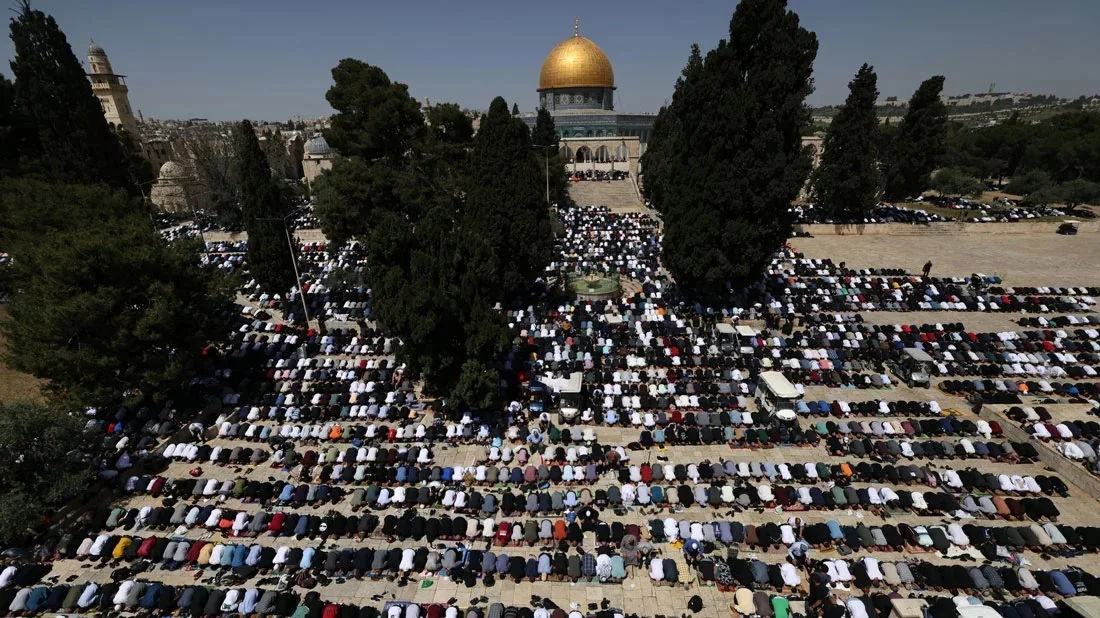Israel charges Al-Aqsa imam with terror incitement
Share on:

The Al-Aqsa Mosque's status remains a highly sensitive issue in the Israeli-Palestinian conflict
The imam of Jerusalem’s Al-Aqsa mosque on Thursday denounced a “fabricated” campaign against him after being charged with inciting terrorism for allegedly praising Palestinian gunmen who killed four Israelis, including a soldier.
Sheikh Ekrima Sabri, 85, formerly mufti of Jerusalem and now head of the Supreme Islamic Council in Jerusalem, preaches at the contested Jerusalem holy site.
Sabri was indicted this week for inciting terrorism for comments he made that allegedly supported an attacker who shot at guards in the occupied West Bank settlement of Maale Adumim, killing a soldier, in October 2022.
The imam is also accused of praising a second attacker, Raad Hazam, who killed three Israelis and wounded six others in an April 2022 shooting in Tel Aviv. The 28-year-old was later killed in a shootout with security guards.
“The state attorney’s office submitted to the Jerusalem magistrate court an indictment against... the former mufti of the city, after he incited terrorism and praised terrorists,” the justice ministry said in a statement Wednesday.
It said Sabri had “praised and sympathized with terrorists” during a visit to Hazam’s family home.
Sabri denied the allegations, saying he merely offered condolences to the families of the attackers after their deaths.
“This is a false accusation; the indictment is fabricated and malicious,” he said.
“Offering condolences does not mean that we support what the children did.”
Sabri’s lawyer Khaled Zabarqa said his client had been targeted for political reasons.
“The indictment is the result of political action and not legal action. The Sheikh has been persecuted for two years,” he told AFP.
The Al-Aqsa Mosque compound, known also by Jews as the Temple Mount, is a flashpoint holy site that is considered the third holiest in Islam.
The site, also the holiest place for Jews, is located in occupied east Jerusalem, which Israel captured in the 1967 Six-Day War and later annexed in a move unrecognized by most of the international community.
The Palestinians seek occupied east Jerusalem as capital of any future independent state.
The site’s status is the emotional epicentre of the Israeli-Palestinian conflict, and even perceived changes have ignited previous rounds of violence.
Jews are officially only allowed to visit, but not pray. But many Palestinians fear Israel may try to assert further control over it.
Some Israeli officials have repeatedly rebuffed that idea, but the country’s far-right National Security Minister Itamar Ben Gvir this month called for Jews to be allowed to pray at the sensitive site.
Source: AFP

